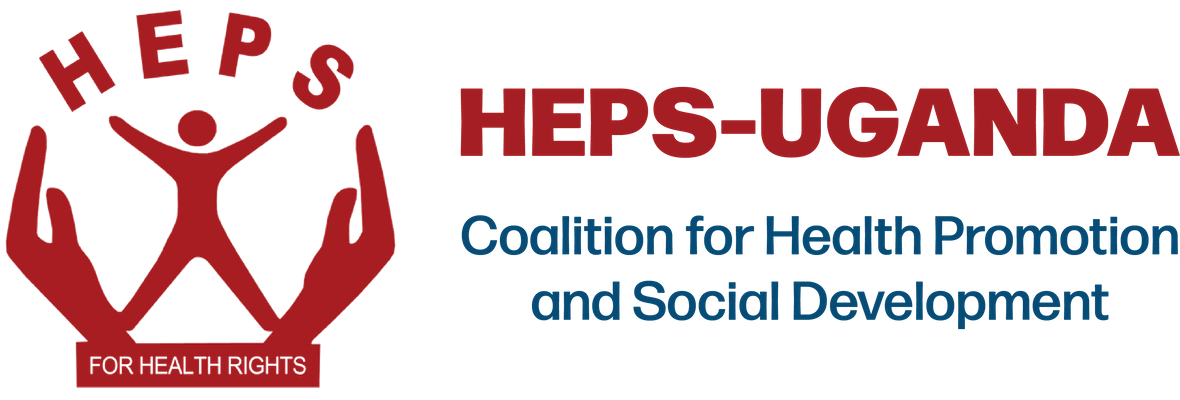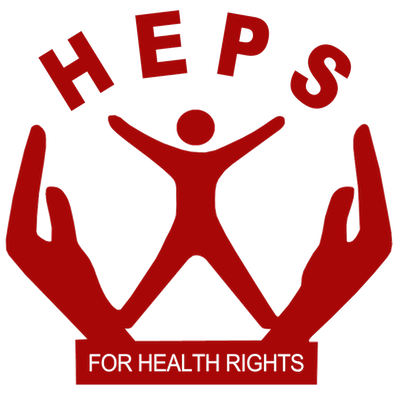Highlights of HEPS Uganda key achievements over the past 10 years
Speech by Executive Director – Mrs Rosette Mutambi
HEPS Uganda 10th Anniversary celebrations on 20th Nov 2010
The Guest of Honour
Members of HEPS Board
Distinguished Members of HEPS
All Religious Leaders present
Government representatives present here
Our Development Partners present here
Media, Observers, Well Wishers present
Ladies and Gentlemen
Welcome
Warm greetings from all of us at HEPS Secretariat and welcome to you all to HEPS-Uganda’s 10th anniversary celebrations.
When HEPS started 10 years ago, the meeting was composed of 5 people seated in some ones veranda but a great Vision was born that day. The vision based on the belief that there is no reason for any Ugandan to die from preventable and treatable diseases; that there should be equity in access to healthcare for all people despite their different backgrounds and that people should be part and parcel of decisions that affect their health.
10 years done the road, some strides have been made although the journey is still long.
Some of the key achievements registered over the last 10 Years
Program development
HEPS –Uganda has developed and strengthened its 3 core programs of community outreach, policy advocacy and counselling and complaints desk and the supportive programme of organisational development.
A.Community Outreach Programme
•The community outreach program which aims at community empowerment on health rights and responsibilities has implemented its work through;
1. ToT and PRA techniques.
HEPS original community empowerment methodology emphasised the use of trained trainers as change agents in communities. However, this was later improved by incorporating participatory reflection and action (PRA) techniques to improve on community participation in problem identification and solving.
2.Setting up field Offices
The program has two field offices in northern Uganda in Lira district and Eastern Uganda in Pallisa district. These also are the secretariats for the respective regional health advocacy coalitions. There are 7 out reach sites in the 10 target districts.
3.Development of Training materials
The community outreach program has well developed training materials which include: a facilitators manual, training manual and easy to read picture based educational materials. The English version has been translated into Lugwere, Ateso and Luo.
4.Development of IEC Materials
Posters, new letters, fact sheets, flyers and brochures on health rights and health responsibilities in were developed, printed and distributed. The English versions of the IEC materials have translated into Lugwere, Ateso and Luo. T-shirts for the various projects were printed and distributed in the targets districts. Some of the IEC materials were distributed to training institutions like Nkozi and Makerere universities where HEPS was invited to give guest lectures.
5.Built Cadre of community volunteers
A cadre of community volunteers has been built with skills in social mobilisation, training and sensitisation. They are well versed with health information as well as human rights issues. A total of 920 community volunteers are registered in the districts of Pallisa, Budaka, Lira, Mbarara, Ntungamo, Kamwenge and Kiboga. These community volunteers have become a key resource in their respective communities as they are called upon by other organisations and local governments to participate in health activities like child days, immunisations, sanitation days etc.
6.Using ICT for health rights awareness creation
A communications hub has been launched and messages on health rights and health responsibilities are frequently sent out to create awareness during the reproductive health commodities campaign, the World AIDS Day and the human rights week. A database of more than 1500 telephone contacts has been created.
B.Health Policy Advocacy Programme
HEPS advocacy capacity has been built and continues to be strengthened through:-
1.Research, policy analysis and engagement
-An experienced research team (71 Research Associates) that monitors availability of medicines across the country has been built and can be called upon to undertake research on medicines. Several publications that inform policy have been produced
-A number of policies in the health and health related sectors have been analyzed and pro health recommendations made to government e.g. Intellectual Property Rights and Health, HIV/AIDS bill, Counterfeit Goods Bill, PPDA and access to medicines , Pharmaceutical Sector strategic plan e.t.c
2.Working with the media
All national level advocacy activities have had the involvement of the media to highlight the activity through print, TV and radio. HEPS has implemented activities with journalists’ organisations like JAAIDS. HEPS provides information and training to journalist on key health issues in order to improve accurate coverage of such issues.
3.Coalition Building
Three networks have been built; one at National level that involved and two at regional level. At national level, the coalition involves over 25 CSOs working on health related issues brought together under a common umbrella, UCAEM. UCAEM has had several working groups that have include HIV/AIDS coalition, Stop Stock outs Group; MeTA CSO Alliance, UHEN and others. Two regional networks are NUCHA in Northern Uganda and EUCHA in the eastern region.
•These networks have been coordinated through constant communication from the secretariat and regional offices and also quarterly coalition meetings.
•HEPS aimed to participate in health policy formulation to ensure consumer friendly laws were in place and to increase awareness among stakeholders on issues of medicines and health care.
4.Pro people pro health Campaigns – A number of successful advocacy campaigns have been conducted over the years including:
•In Defense of national interest – Patents rights or patients rights
•Campaign for Global Fund Suspension,
•Campaign on Access to Treatment,
•Abolition of 10% tax on Medicine,
•Access to Mama kits campaign,
•Access to reproductive commodities campaign
•Stop Stock outs campaign,
•Anti-counterfeiting Goods Bill Campaign,
•Campaign to end paediatric HIV/AIDS.
•HEPS campaigns are linked to international campaigns through partenership with international organizations like HAI Africa, Health gap and others – eg Campaign to influence developed countries to meet commitments to Global Fund etc
C.Counseling and Complaints desk
This programme aims at providing a channel for health care consumers to lodge their complaints and find redress in turn. This has been achieved through:
1.Training Health workers
2.Partnering with health centres in target districts
3.Setting up counseling and complaints desks at the health facilities and instituting complaints boxes.
4.Advocate for an enabling law addressing health rights violations through which the organisation could offer assistance, representation and referral services (legal aid) to health consumers with complaints. Recommendations for the law have been made to the Uganda Human Rights Commission (UHRC) and are being followed up.
D.Continuous organizational and professional development
The organisational development programme aims to ensure and maintain an efficient, effective and professional organisation offering high quality services and products by providing administrative support to and providing a platform on which the strategic programmes can operate smoothly. The following have been practised in this programme.
1.Continuous review and strengthening management systems and internal policies of HEPS-Uganda;
2.Effective communication within the organisation and with stakeholders outside the organisation;
3.Managing and skills building for HEPS human resource exchange programs, internal mentoring etc
4.Programme design and regular review, regular Board meetings and term limits, regular AGM and other member meetings ; continuous membership mobilization, development and recognition
5.Communication of information on Right to health through continuous strengthening of resource centre and making us of IT platform – website, communication HUB and making us of social media for advocacy eg facebook , twitter etc.
6.Strengthening the organization’s capacity to raise funding for the organizations activities.
Some key highlights of IMPACT
Compared to when HEPS started, public demand for better health service has increased – our Stop stock out campaign resulted in the President constituting a Drug monitoring unit which has unearthed drug thefts and other rot in the health sector
HEPS research findings have been used in policy like – the quarterly monitoring of medicine availability and prices
HEPS policy recommendations have been Incorporated on some laws and policies like – the Intellectual property Bill, The Counterfeit Goods Bill, The HIV/AIDS Bill and others
At community level – Over 1000 community based leaders in 10 target districts have been empowered. They know their rights and responsibilities, and they have trained others and they can ably demand for redress when their rights are abused. Challenge is lack of an enabling law for protection of right to health.
In sub counties where HEPS is operating , increased number of women attending ANC and delivering at health centers has been registered and acknowledged by the respect DHOs – but poor service delivery is still letting us down
HEPS represents consumer voice on key government policy making bodies – like MOH technical working group on medicines – where consumer voices are directly heard by government
JOIN US NOW
IN MAKING HEALTH RIGHTS AND HEALTH RESPONSIBILITIES A REALITY




